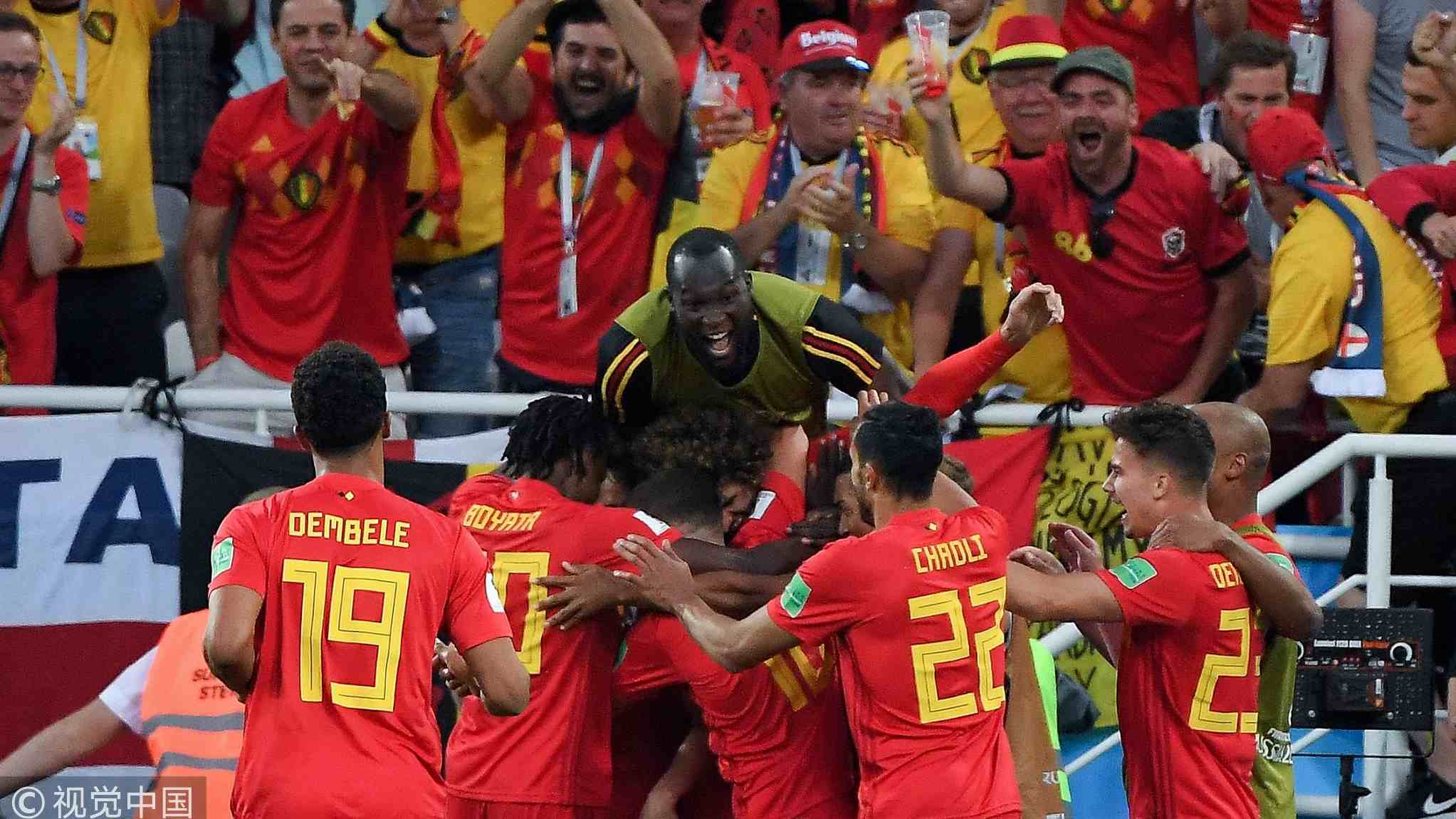About one in six players at this year's World Cup in Russia had some migration background, having been born abroad or having at least one parent of foreign descent, according to a rough tally by CGTN.
As the migrant debate rages on in Europe and elsewhere, here is a breakdown of some of the teams and some comments players have made about their background and country of adoption.
I remember the night that we arrived with the bus, it was very cold in Switzerland... My dad and my mother just wanted something better for us. You have to be brave to move your family from your comfort zone.
- Switzerland's Valon Behrami, born in the former Yugoslavia.
At this year's tournament, Switzerland, Belgium, France, Germany and Australia fielded teams that relied heavily on players from immigrant families.
Morocco, Tunisia and Senegal, conversely, called up two dozen foreign-born players whose families had emigrated, mostly to France, and who returned to play for the national team.
Swiss melting pot
Probably the most eclectic mix of players has been the Swiss squad:
- Yvon Mvogo, Francois Moubandje, Breel Embolo were born in Cameroon.
- Johan Djourou was born in Cote d’Ivoire, Gelson Fernandez in Cape Verde.
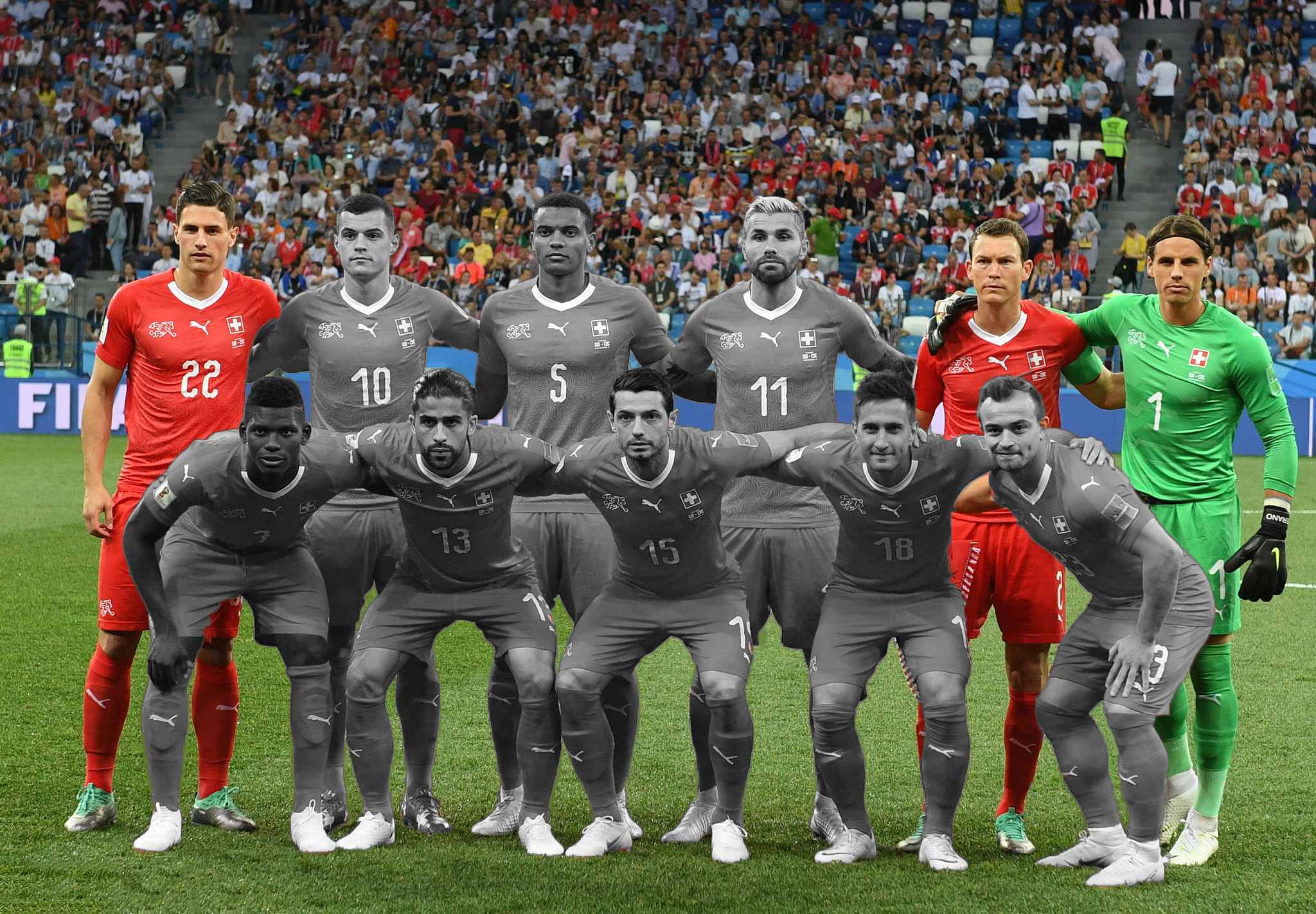
What the Swiss national team would look like without players with a migration background. /VCG Photo
What the Swiss national team would look like without players with a migration background. /VCG Photo
- Xherdan Shaqiri, Valon Behrami, Blerim Dzemaili were born in former Yugoslavia; Granit Xhaka, Haris Seferovic, Josip Drmic and Mario Gavranovic have parents who came from former Yugoslavia.
- 14 Swiss players, including all of the above, have dual citizenship.
- Ricardo Rodriguez, whose father is Spanish and mother Chilean, holds triple citizenship.
I have two parts of my life which are very important: one is Switzerland, and one is Kosovo... It feels very good to give back something to Switzerland. It’s a country that gave me this opportunity to be here. I want just to give 100 percent for a country that has given me everything.
- Switzerland's Valon Behrami in 2017.
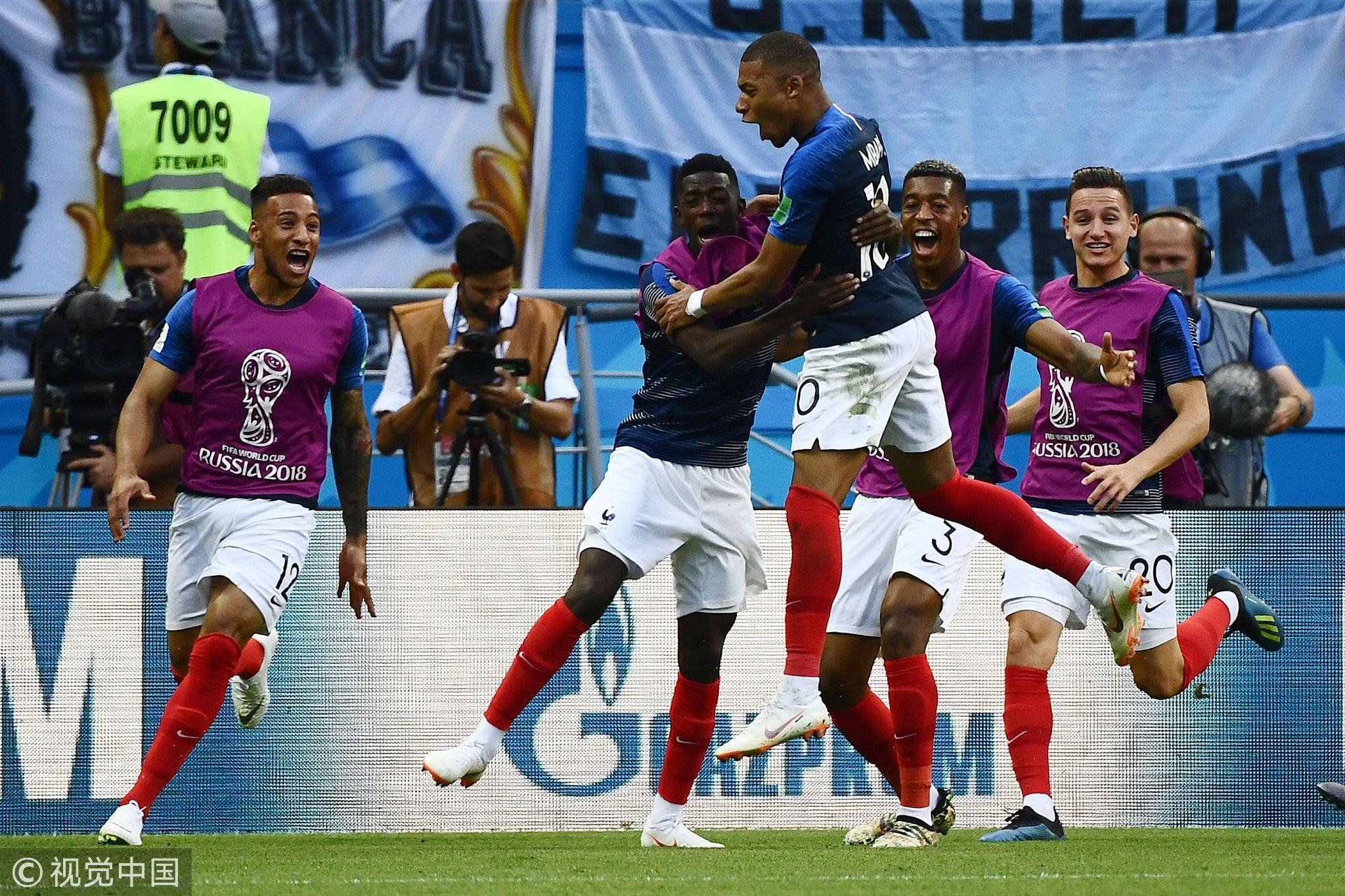
France's forward Kylian Mbappe (C-R) celebrates his second goal during the Russia 2018 World Cup round of 16 football match between France and Argentina at the Kazan Arena in Kazan, June 30, 2018. /VCG Photo
France's forward Kylian Mbappe (C-R) celebrates his second goal during the Russia 2018 World Cup round of 16 football match between France and Argentina at the Kazan Arena in Kazan, June 30, 2018. /VCG Photo
African atlas
The biographies of the French national team read like an atlas of the African continent, from Paul Pogba (parents from Guinea) to Ousmane Dembele (Senegalese-Mauritanian mother, father from Mali), Kylian Mbappe (Cameroonian father, mother of Algerian descent) and Blaise Matuidi (Angolan father, Congolese mother).
Steve Mandanda was born in Zaire (now Democratic Republic of Congo) and Samuel Umtiti in Cameroon. Born in France but of Filippino descent, Alphonse Areola, holds dual citizenship and was offered to play for the Philippines but opted for France instead.
I have never forgotten my Angolan roots… They are proud of my career there. If I am French, I feel just as Angolan.
- French player Blaise Matuidi in 2014. Cited in The Guardian.
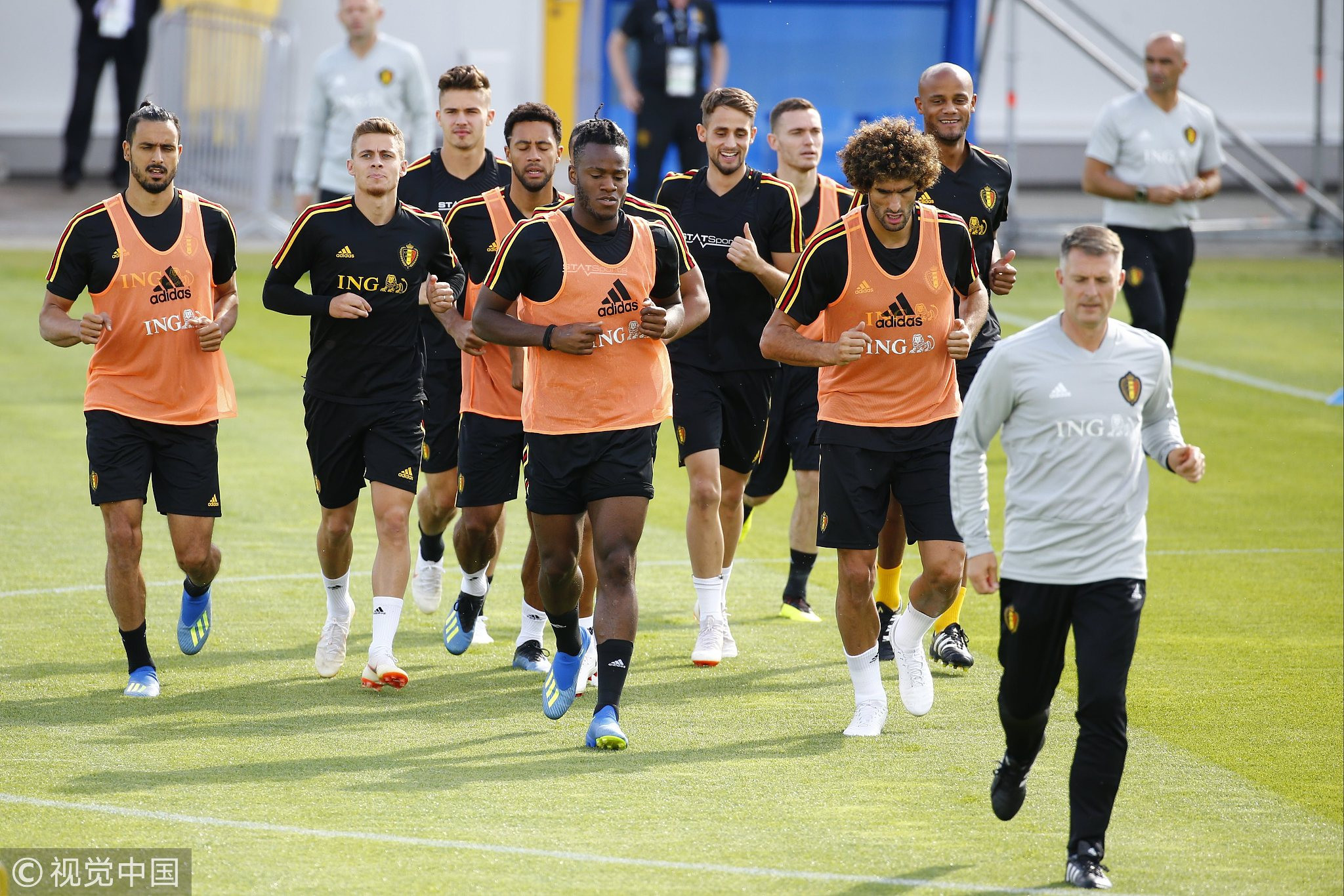
The Belgium team train prior to the FIFA 2018 World Cup Russia group G phase match between Belgium and England at the Guchkova Sports center in Moscow, Russia, June 25, 2018. /VCG Photo
The Belgium team train prior to the FIFA 2018 World Cup Russia group G phase match between Belgium and England at the Guchkova Sports center in Moscow, Russia, June 25, 2018. /VCG Photo
The Belgian team has similarly strong African roots:
- Romelu Lukaku, Michy Batshuaiyi, Vincent Kompany, Dedryck Boyata and Youri Tielemans all have at least one Congolese parent.
- Moussa Dembele’s father came from Mali.
- Nacer Chadli and Marouane Fellaini have Moroccan heritage.
- exceptions are Adnan Januzaj, whose parents came from Kosovo, and Yannick Carrasco, whose parents are Portuguese and Spanish.
Morocco remains a country I love but I grew up in Belgium and I feel Belgian. This doesn’t mean I won’t take my Moroccan roots with me everywhere I go.
- Belgian international Nacer Chadli in 2011 after deciding not to play for Morocco.
Second-generation stars
Germany, which failed to make it past the group stage, had its own share of second-generation immigrants in its squad, from Sami Khedira (Tunisian father) to Jerome Boateng (Ghanaian father), Ilkay Guendogan and Mesut Oezil (Turkish parents) or Antonio Ruediger (mother from Sierra Leone).
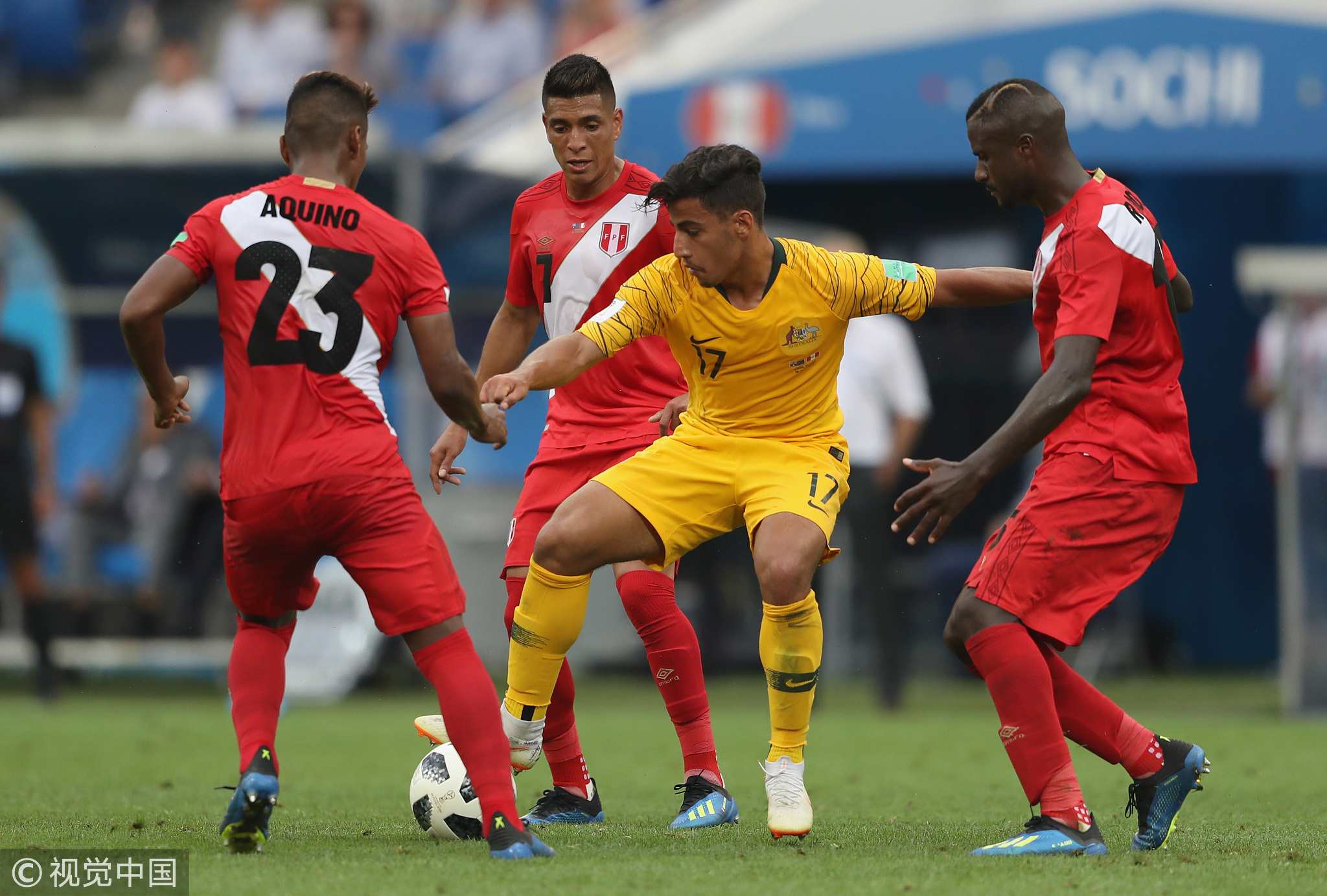
Daniel Arzani of Australia is challenged by Pedro Aquino, Paolo Hurtado and Christian Ramos of Peru during the 2018 FIFA World Cup Russia group C match between Australia and Peru at Fisht Stadium in Sochi, Russia, June 26, 2018. /VCG Photo
Daniel Arzani of Australia is challenged by Pedro Aquino, Paolo Hurtado and Christian Ramos of Peru during the 2018 FIFA World Cup Russia group C match between Australia and Peru at Fisht Stadium in Sochi, Russia, June 26, 2018. /VCG Photo
Australia’s Socceroos included Iranian immigrant Daniel Arzani and players of Croatian, Serbian, Lebanese, Turkish, and Greek descent.
We owe something, I wish that Daniel will make Australia proud of himself, he will make the extended Australian family proud of himself too.
- John Arzani, father of Australia's Iran-born Daniel Arzani, to ABC Radio in June 2018.
'Reverse' migration
In a sort of reverse migration, a number of players also returned to play for their parents' country of origin, despite being born abroad.
A tally by Euronews showed this was the case for nine out of 23 players in the Tunisian national team, while eight in the Senegalese team were born in France. Morocco however topped the ranking with 17 foreign-born players, mostly in France and the Netherlands, but also Spain, Belgium and Canada.
(Top picture: Belgium's players celebrate their opening goal during the Russia 2018 World Cup Group G football match between England and Belgium in Kaliningrad, Russia, June 28, 2018. /VCG Photo)

